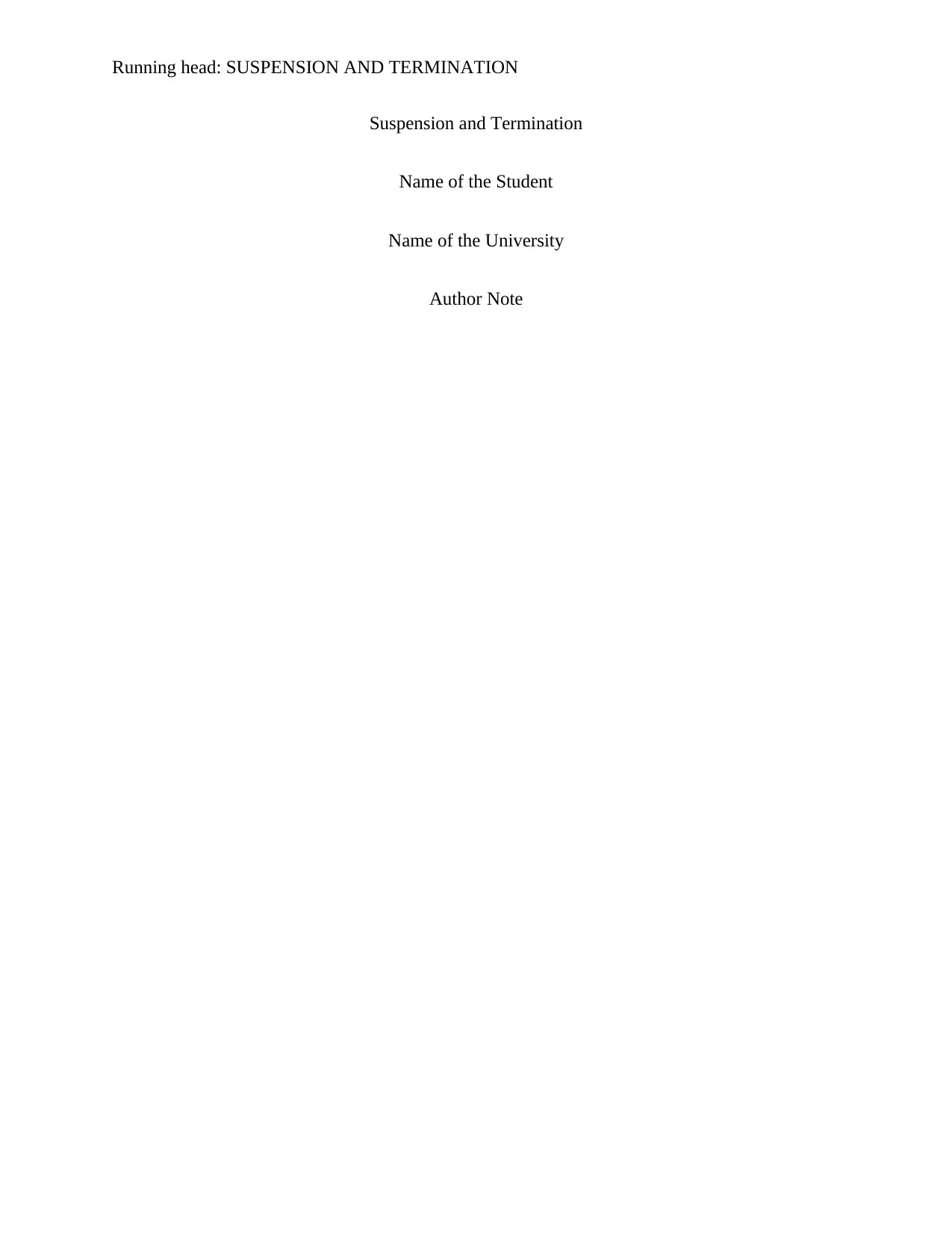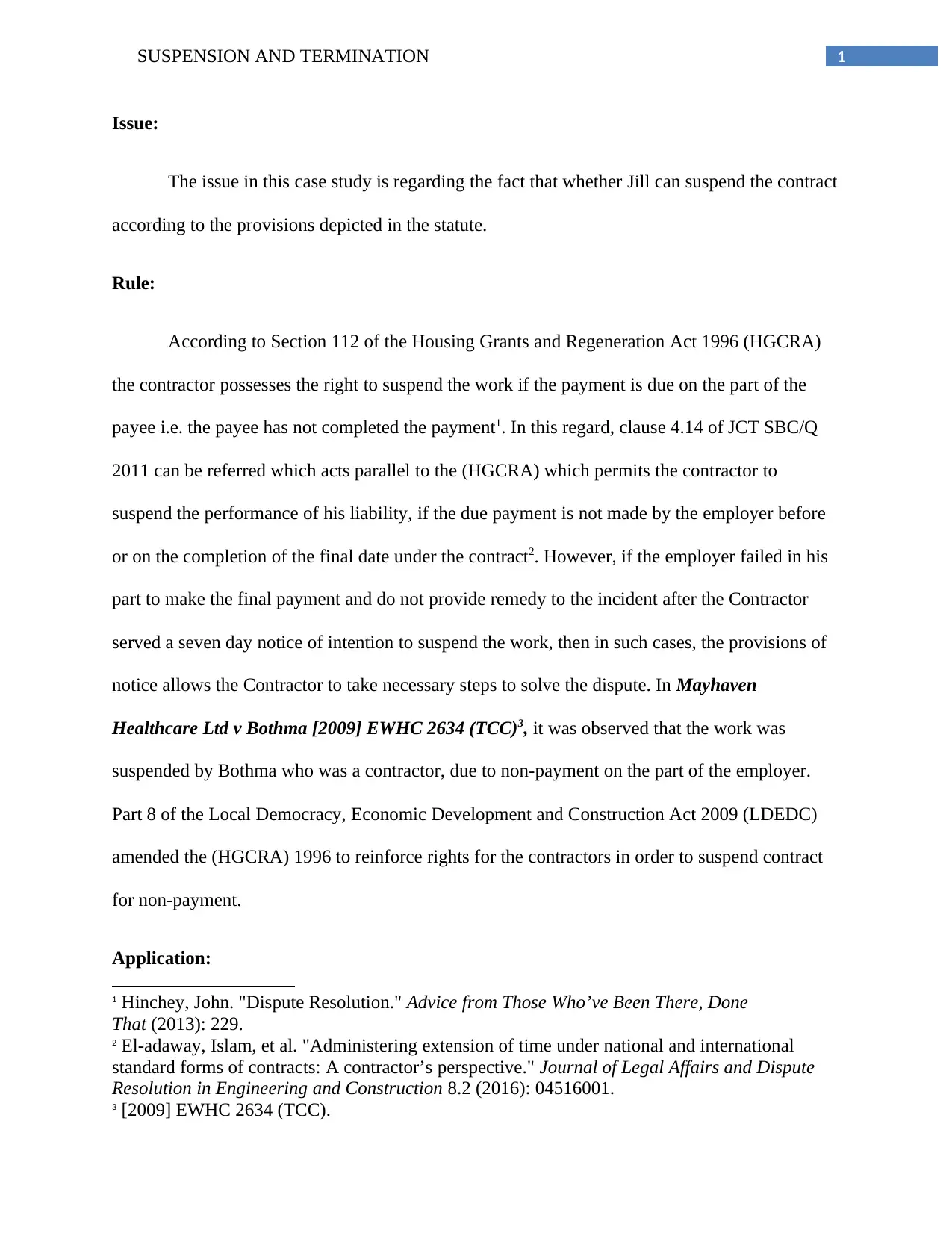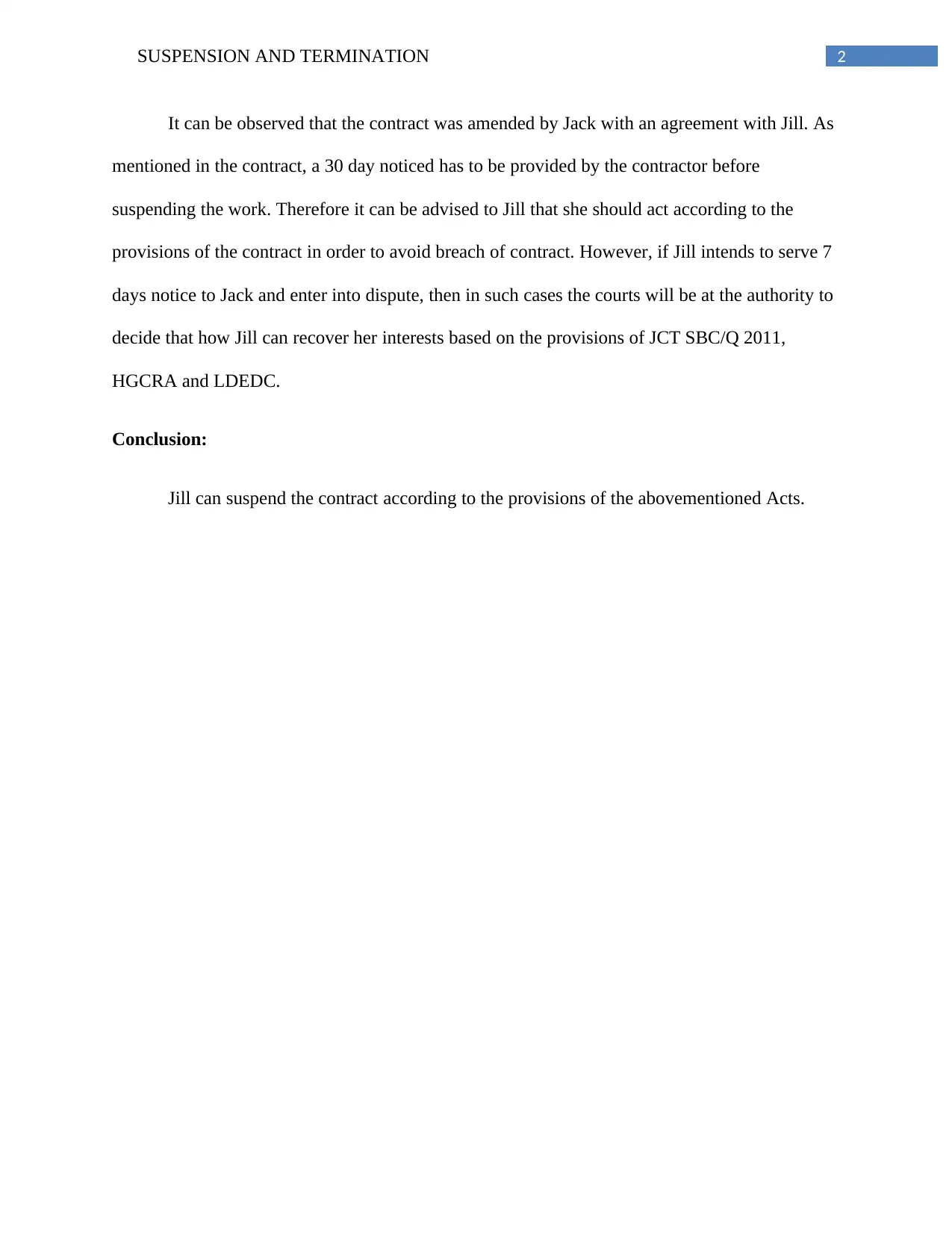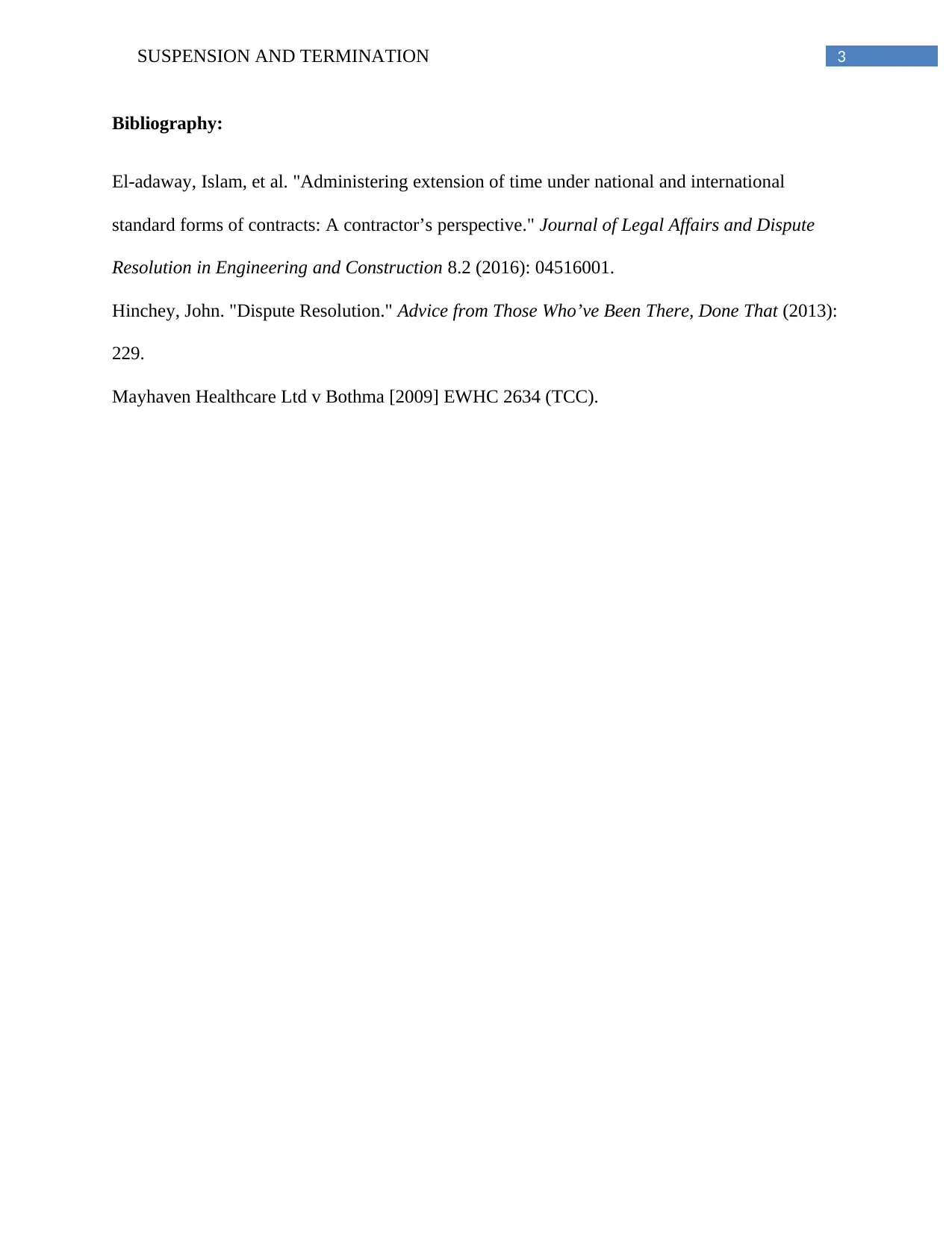Suspension and Termination in Construction Contracts: A Case Study
VerifiedAdded on 2023/06/15
|4
|602
|264
Case Study
AI Summary
This case study addresses the issue of whether Jill can suspend a contract based on statutory provisions, particularly concerning non-payment. It references Section 112 of the Housing Grants and Regeneration Act 1996 (HGCRA) and clause 4.14 of JCT SBC/Q 2011, which allow a contractor to suspend work if payment is overdue. The Mayhaven Healthcare Ltd v Bothma case is cited to illustrate a real-world scenario. The analysis applies these rules to Jill's situation, considering an amendment to the contract requiring a 30-day notice before suspension. It advises Jill to adhere to contractual provisions to avoid breach but acknowledges her right to serve a 7-day notice and enter into dispute, with the courts ultimately deciding the recovery of her interests based on JCT SBC/Q 2011, HGCRA, and LDEDC. The conclusion asserts that Jill can suspend the contract in accordance with the aforementioned acts.
1 out of 4





![[object Object]](/_next/static/media/star-bottom.7253800d.svg)